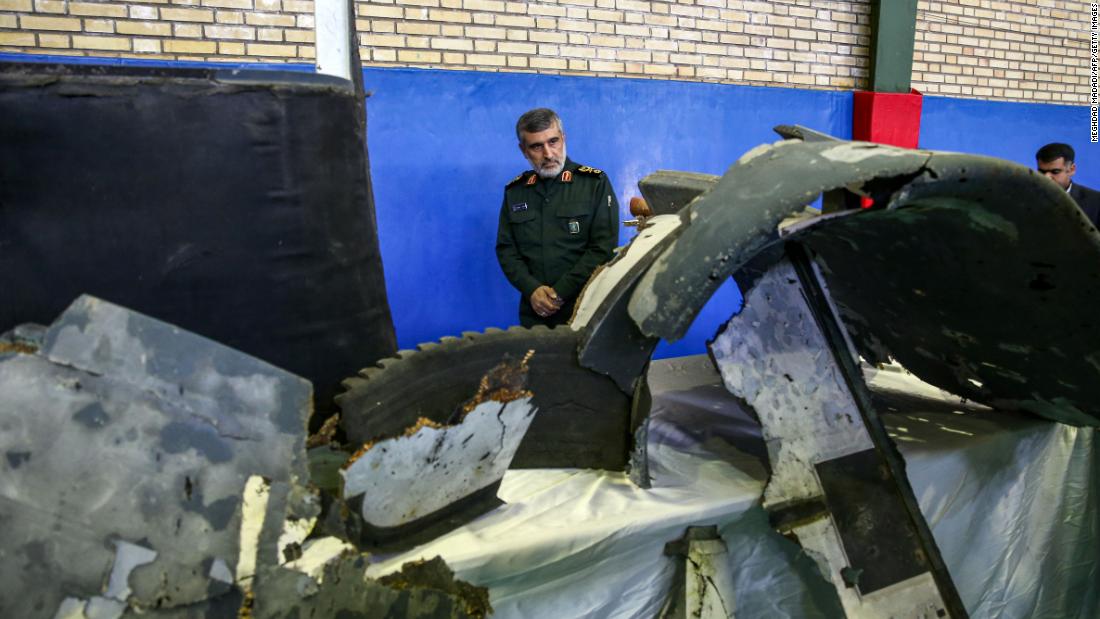
Last month, the New York Times reported the White House had set in motion an attack on Iranian military assets in response to Tehran's downing of a US surveillance drone over the Strait of Hormuz, but President Donald Trump reportedly called it off.
Following what appeared to be a step back from the brink of war, Trump again ratcheted up his use of heated rhetoric by indicating an Iranian attack on US interests would be met with "obliteration." His threat came in response to a caustic remark by Iranian President Hassan Rouhani, who described the White House as being "inflicted by mental retardation."
On Monday, Trump continued his bellicose language, telling reporters that Tehran was "playing with fire" after reports surfaced that the Iranian regime had exceeded the amount of enriched uranium permitted under a 2015 global nuclear deal.
The prospect of war brings with it the reality that Iran, described by the US State Department as one of the leading state sponsors of terrorism, might benefit from asymmetric operations overseas or within the US by terrorist elements long supported by the Iranian regime.
One group is particular is Hezbollah, an Iranian-linked extremist organization designated by the US as a foreign terrorist organization. The group is believed to have been responsible for several deadly attacks around the world over the past three decades, some of which killed Americans.
In its latest report on global threats, the Office of the Director of National Intelligence lists Hezbollah as a key challenge to global security and claims the group "most likely maintains the capability to execute a range of attack options against US interest worldwide."
Although federal law enforcement has arrested numerous people in recent years associated with or inspired by Sunni Muslim extremist groups like al Qaeda and ISIS, the FBI has also disrupted the operational activity of a small number of individuals linked to the Shiite Muslim Hezbollah.
US counterterrorism officials have not publicly released estimates of how many Hezbollah members are suspected of being in the country, but a senior US national security official tells CNN that the government continues to investigate and degrade Hezbollah's capabilities in the United States.
"Hezbollah is certainly a national security priority, because they have the capacity to commit hostile acts but have not necessarily had the motive to do so," the senior US official said. "Our efforts have been to reduce their capacity in case their motives shift."
One recent court case provides a window into Hezbollah's domestic operations. In 2017, authorities arrested Ali Kourani, a 32-year-old New York resident charged with providing material support to Hezbollah.
Information documented in a criminal complaint listed Kourani as a self-described "sleeper" who, along with another arrested associate, was supposed to "maintain ostensibly normal lives but could be activated and tasked" to conduct operations.
Kourani attended a Hezbollah "boot camp" in Lebanon and surveilled a number of possible targets in the US including airports and government buildings, according to the complaint. Kourani was convicted by a jury in May and awaits sentencing later this year.
Other past cases highlight efforts by Hezbollah-linked operatives to raise money and procure weapons and communication equipment. In 2009, federal officials indicted 10 people for alleged roles in providing material support to the terrorist group. Their tactics included trafficking in stolen and counterfeit merchandise in order to raise and launder funds, and conspiring to export weapons for use by the group in places like Syria, according to the Justice Department.
As the Trump administration gears up for possible military action with Iran, it is unclear how extensive the role of federal law enforcement has been in war-planning efforts. An FBI spokesperson declined to comment on what, if any, part the bureau is playing in White House meetings about Iran.
"We know that Iran has used proxies, to include Hezbollah, around the world for its malign activity," said Lisa Monaco, former White House homeland security adviser to President Barack Obama and assistant attorney general for national security. "As tensions escalate, it is important that there be a coordinated approach across the counterterrorism community, so that the FBI and others with responsibility for security here at home are aware of US moves and potential responses to those moves."
Although federal law enforcement has not traditionally been party to decision-making discussions about military action abroad, the FBI would be responsible for detecting any retaliatory threats inside the country that come in response to armed conflict between Iran and the United States.
One former counterterrorism official notes that Hezbollah's experience and training pose a challenge to efforts by law enforcement to understand the group's motives.
"Unlike those linked to ISIS, Hezbollah operatives are highly trained and incredibly disciplined," said Robert Baer, a retired CIA operations officer and CNN national security analyst. "You're not going to find them getting caught up in the net of law enforcement by boasting online about wanting to conduct attacks."
Bagikan Berita Ini














0 Response to "Iran could benefit from terrorist proxies in a war with US"
Post a Comment